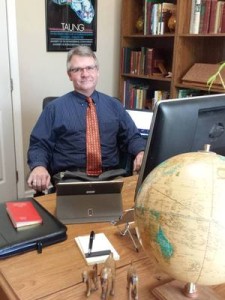
Loss of biodiversity is one of the greatest threats to global sustainability. There is a broad scientific consensus that the current rate of species loss is so extreme that it amounts to a mass extinction of life on Earth.
This month, the School of Global Environmental Sustainability at Colorado State looks at the issue of human population growth and its effects on the rest of life on earth with two events.
On Feb. 11, noon-1 p.m., in Room 386 of the Lory Student Center, SoGES and the Biodiversity Working Group will host guest lecturer Jeffery McKee. His topic is “The Human Wedge: How Human Population Growth is Fueling a Mass Extinction.”
McKee is a physical anthropologist in the Ohio State University Department of Anthropology, conducting research on hominid evolution and paleoecology. He has directed excavations at the early hominid sites of Taung and Makapansgat, and has published on fossils from other South African sites as well.
Managing the Planet panel
Later that same day, Feb. 11, SoGES’s monthly Managing the Planet panel discussion takes on the topic: “Are Too Many People the Problem? Overpopulation and Biodiversity Loss.” The discussion, also sponsored by the Biodiversity Working Group, takes place 5-6:30 p.m. at Avogadro’s Number, 605 S. Mason St.
McKee will join a panel of CSU experts and conservationists to discuss what role human population growth has played in causing the ongoing extinction of Earth’s species. What role might population stabilization or reduction play in preserving Earth’s species, from tigers in India to prairie dogs in Colorado?
Panel participants also include Philip Cafaro, Department of Philosophy; Kathleen Galvin, Department of Anthropology; and Barry Noon and George Wittemyer, Department of Fish, Wildlife, and Conservation Biology. The panel will be moderated by Gene Kelly, chair of the Department of Soil and Crop Sciences and associate director for research and development for SoGES.
Both of these events are free and open to the public.